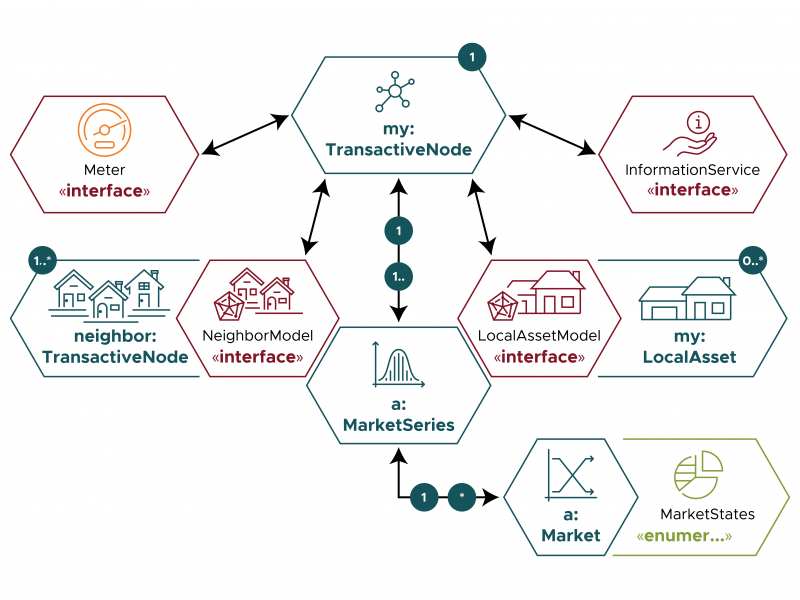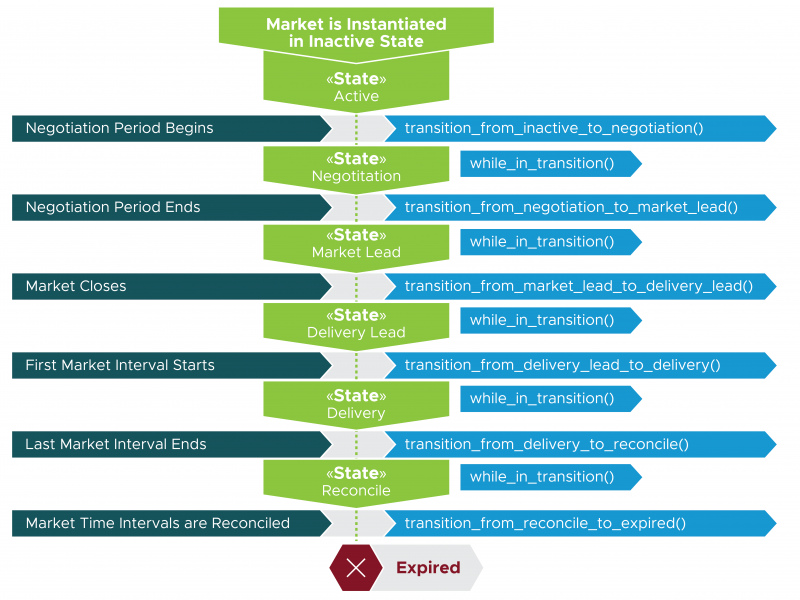Field Demonstration Tools
Transactive Energy Network Template
PNNL developed tools to reduce the effort required to establish and participate in a transactive energy system. The Transactive Energy Network Template (TENT) was established to facilitate setup and operation of a node within such a system. Users download a reference code implementation to start, and the example implementation can be configured and extended using TENT structure and guidance.

The TENT metamodel is based on the perspective of a user’s transactive node within a network system of transactive nodes. Each such node provides an interface to its local assets, an interface to neighboring transactive nodes with which it interacts, and interfaces to any needed meters and information services. Transactive network members interact via more market series, each of which has its own timing and participation rules. Individual market objects are spawned, as needed, for each specific market period or set of market periods (e.g., a day-ahead market usually has 24 hourly periods).

TENT facilitates definition of flexible alternative market practices. It provides a market state machine through which market objects must exist and transition. While each market must exist in and transition through the states in a defined order, TENT offers the designer great freedom to define the activities that must be performed during each state and the criteria that must be satisfied to allow transitions to the next states. The graphic shows the triggers that allow the transitions (left) and the methods that are called once by transitions and throughout the various states (in red). Some example artifacts from the states and transitions are exemplified (right) for one-time auction and iterative market processes.
The PNNL Clean Energy and Transactive Campus Project features innovative building control systems and uses TENT to link building performance and grid objectives in a transactive energy system.